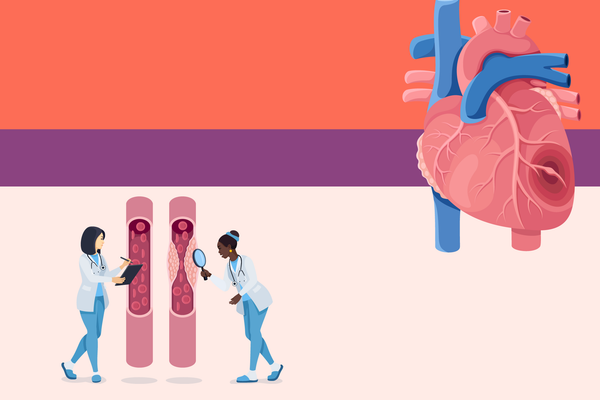Women are three times more likely to die after a serious heart attack than are men. That's the findings of a study published in the Journal of the American Heart Association, highlighting a few serious facts.
Learn More: How Women's Heart Attack Symptoms Are Different Than Men's
Heart attacks in women are not usually the typical movie version of the elephant-sitting-on-your-chest.
1. Despite decades of awareness and prevention, heart disease continues to be the number one cause of death in this country.
2. Heart attacks kill more women than all forms of cancer combined, killing one woman every minute.
3. While having a healthy lifestyle is a good preventive measure against heart disease, it can't totally eliminate that risk. Other factors—like cholesterol, family history and high blood pressure—matter, too. Yet there's a lot of misconception surrounding risk factors and facts. For example, a Heart IQ Quiz conducted by MDVIP, a national network of concierge physicians, found that only 55 percent of women said they were knowledgeable about the risk factors for heart disease, and only 43 percent were well informed on the best screening methods for heart disease.
4. Being a woman means different, less traditional symptoms and risk factors for heart disease and heart attack. That's why many women mistakenly attribute their symptoms to things like indigestion, acid reflux, the flu or just plain aging.
5. It's possible to have a heart attack and not even know it. "Silent" heart attacks, which have no obvious symptoms, are more common in women than in men. These may not be discovered for days, weeks or even months after they occur, when your health care professional performs an electrocardiogram. These types of heart attacks can occur in women younger than 65 and are more likely to happen to women with diabetes (which can change the way you experience pain).
6. The most common symptom, for men and women, is chest pain. But only half the women who suffer heart attacks will get this warning sign. Women are more likely to have different symptoms than men, including:
Back, neck, jaw or throat pain
Nausea
Vomiting
Extreme fatigue
Shortness of breath
Pain in the back, neck, jaw or throat
Lightheadedness or dizziness
Breaking out in a cold sweat
7. It's never too late to adopt healthy habits. If you smoke, quit—you can reduce your risk of coronary heart disease by 50 percent just one year after quitting. Aim for 150 minutes of exercise each week, and concentrate on a diet rich in whole grains, fruits and vegetables, low-fat dairy and poultry, fish and nuts. The same survey mentioned above found that more than half of Americans falsely believe that people with heart disease should eat as little fat as possible. But there is value in unsaturated fats found in foods like salmon, nuts, soybeans and avocados, all of which can actually help improve cholesterol.
This post originally appeared on mysocalledmidlife.net.





